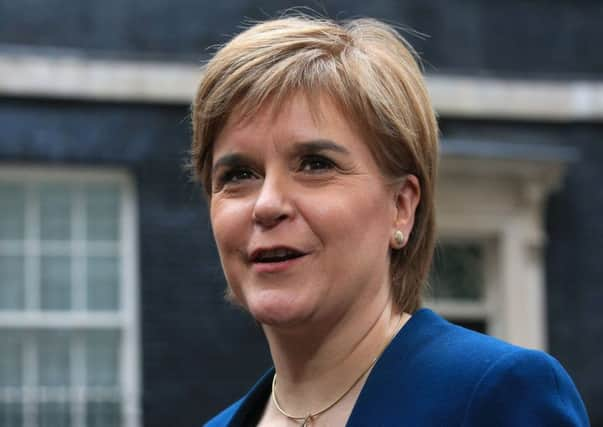Leader comment: Nothing to be gained from antagonism


The first scenario, if true, could be seen as a snub for Ms Sturgeon, although it could just as easily be the result of Mrs May’s reluctance to face difficult questions. The second scenario could be an acknowledgment that the First Minister is in a weaker position than before the general election; alternatively, it may be face-savingly convenient to claim that Ms Sturgeon wasn’t looking for a meeting in the first place.
Amid such speculation, one thing is certain: the two heads of government have not met since March, and have no plans to catch up in the immediate future.
Advertisement
Hide AdAdvertisement
Hide AdIn some respects, it might be wise to maintain distance. Each is well aware of the other’s position on all fronts, and previous meetings have not moved matters forward by any significant amount. Agreeing to disagree is about as good as can be hoped for.
But that does not mean lines of communication are closed. Regular meetings can still take place between the UK and Scottish governments over Brexit negotiations, without having to involve the heads of those administrations on each occasion.
Where the Prime Minister has to be careful is how such an arrangement is received. One report has suggested that a Tory minister believes Ms Sturgeon should only be entitled to meet the Scottish Secretary, David Mundell, because “he is at the same level as her” That attitude would be a mistake, because it would create grievance by giving the impression that Scotland’s interests were not being taken seriously by the Prime Minister.
Downing Street had the opportunity to deny this accusation explicity yesterday, but stopped short, saying instead that the UK government remained committed to engaging with the Scottish Government at all levels.
The next moves in this situation have to be carefully managed, because Mrs May knows that she cannot afford to damage her party’s current popularity in Scotland. Without those 13 MPs, she would not still be in power.
Ultimately, the Prime Minister holds power over Scotland’s fate in the ongoing Brexit negotiations. There is little to be gained by unnecessarily antagonising, or locking out, the First Minister.